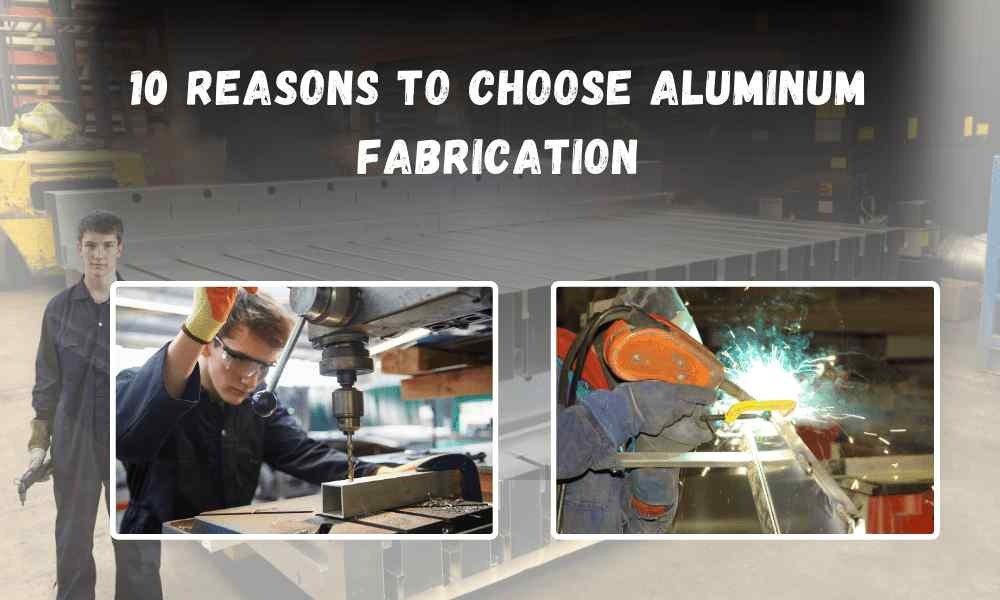Aluminum is exceptionally lightweight, making it easier to handle, transport, and fabricate compared to other metals, reducing labour and transportation costs. Despite its lightweight nature, aluminum boasts an impressive strength-to-weight ratio, offering excellent structural integrity for a wide range of applications. Moreover, aluminum naturally forms a protective oxide layer when exposed to air, providing inherent corrosion resistance that prolongs the lifespan of fabricated products, especially in harsh environments. Additionally, aluminum is highly machinable, allowing for intricate designs and precise fabrication processes, leading to efficient manufacturing and customization options.
With exceptional thermal conductivity, aluminum fabrication is widely used in heat transfer applications, such as radiators and heat sinks, enhancing energy efficiency and performance. These qualities collectively make aluminum fabrication a preferred choice across various industries.
Strength and Durability of Aluminum
Aluminum may be lightweight, but don’t let that fool you. It boasts an impressive strength-to-weight ratio, making it ideal for applications where durability is paramount. Whether it’s in construction, automotive, or aerospace, aluminum’s strength ensures longevity and reliability.
Versatility in Design
One of the most attractive features of aluminum is its versatility in design. From sleek architectural structures to intricate automotive components, aluminum can be shaped and moulded to meet virtually any design requirement. Its adaptability opens doors for innovative and creative solutions in various industries.
Lightweight Nature
Aluminum’s lightweight properties offer numerous advantages, particularly in industries where weight is a concern. Whether it’s in aircraft manufacturing or portable structures, aluminum’s low density contributes to fuel efficiency, transportation ease, and overall mobility.
Corrosion Resistance
Unlike some other metals, aluminum boasts exceptional resistance to corrosion. This means that aluminum products can withstand harsh environmental conditions without succumbing to rust or degradation. From coastal applications to marine environments, aluminum remains steadfast against corrosion, ensuring longevity and reliability.
Cost-effectiveness
Choosing aluminum fabrication can lead to significant cost savings. While initial investment costs may vary, aluminum’s long-term benefits outweigh its upfront expenses. From reduced maintenance costs to energy savings, aluminum proves to be a cost-effective solution across industries.
Environmental Benefits
Aluminum fabrication aligns with environmentally conscious practices. Its production process consumes less energy compared to other materials, contributing to reduced carbon emissions. Additionally, aluminum’s recyclability ensures that it can be repurposed repeatedly without compromising its quality, promoting sustainability and resource conservation.
Easy Maintenance
Say goodbye to tedious maintenance routines with aluminum. Unlike some materials that require frequent upkeep, aluminum products demand minimal maintenance. This translates to lower maintenance costs and less downtime, allowing businesses to focus on core operations without interruptions.
Faster Production Time
In today’s fast-paced world, time is of the essence. Fortunately, aluminum fabrication processes offer shorter lead times compared to other materials. This means quicker turnaround times for projects, enabling businesses to meet deadlines and stay ahead of the competition.
Recyclability of Aluminum
Aluminum is a frontrunner in the realm of recycling. Its recyclability makes it a valuable resource in the circular economy, where materials are reused to minimize waste. By choosing aluminum fabrication, industries contribute to a sustainable future while reducing their environmental footprint.
10. Conclusion
In conclusion, the advantages of choosing aluminum fabrication are undeniable. From its strength and durability to its environmental benefits and cost-effectiveness, aluminum emerges as a versatile and sustainable material for a wide range of applications. By opting for aluminum, businesses can enjoy enhanced performance, reduced costs, and a greener footprint.
Unique FAQs
1. Is aluminum fabrication suitable for outdoor applications?
Absolutely! Aluminum’s corrosion resistance makes it an excellent choice for outdoor use, ensuring durability and longevity even in challenging environments.
2. How does aluminum compare to other metals in terms of weight?
Aluminum is significantly lighter than many other metals, such as steel. Its low density makes it ideal for applications where weight reduction is critical, such as aerospace and automotive industries.
3. Can aluminum fabrication be customized to specific design requirements?
Yes, aluminum fabrication offers immense flexibility in design. Whether it’s shaping, bending, or welding, aluminum can be tailored to meet precise specifications, allowing for unique and innovative solutions.
4. What are some common industries that benefit from aluminum fabrication?
Aluminum fabrication finds applications in various industries, including construction, transportation, aerospace, electronics, and packaging, among others.
5. Is aluminum fabrication an environmentally friendly choice?
Yes, indeed. Aluminum fabrication aligns with sustainability goals due to its recyclability, energy efficiency, and minimal environmental impact compared to other materials.



